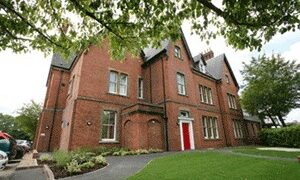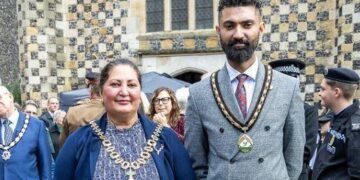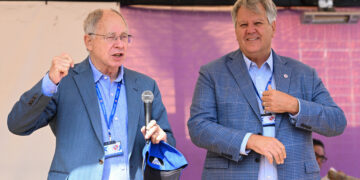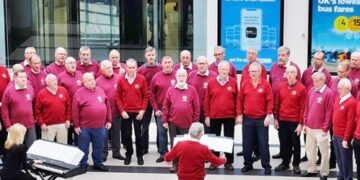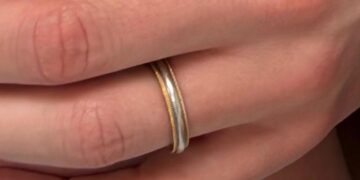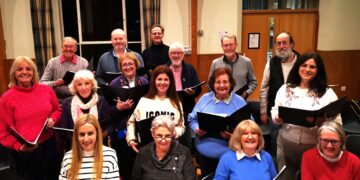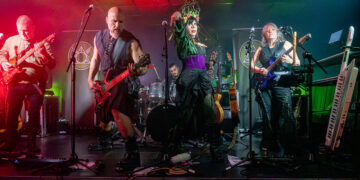The custom of ringing a curfew bell when everyone should go to bed dates from Alfred the Great. William, I made it a legal duty, aimed at the conquered English to prevent them from having rebellious night-time meetings.
The word curfew derives from the French couvre-feu meaning cover fire, and through the mediaeval period, the custom helped avoid house fires. Logs were removed and cold ashes spread over the hot embers, which could be revived in the morning. Wealthy people might use a metal cover called a ‘couvre-feu’.
The first mention of ringing the curfew in Wokingham is in Richard Palmer’s charity of 1664. He gave lands to the charity from which the profits were to be paid: ‘to the Sexton of the Parish Church of Wokingham, or to such other persons as the Trustees think meet, to ring the greatest bell belonging to the said Parish Church that shall be fit to be rung, half an hour every evening at eight o’clock and every morning at 4 o’clock, or as near those hours as may be, from the 10th of September to the 11th of March in each year for ever’.
We can judge how the curfew was viewed at the time because Palmer stated his motivation at length. His object was to promote: ‘a timely going to rest in the evening, and early risings (things ordinarily attended and rewarded with thrift and proficiency), and that strangers who should happen to lose their way in winter might be informed of the time of night, and receive some guidance; and also that all those whose care of being mindful of their latter end should incline them thereunto, might at the ringing of the evening bell think of their own passing and day of death, and at the ringing of the said morning bell might think of the resurrection and call to their last judgement’.
Palmer’s view of bells as alarm clocks, navigation beacons, and religious observance has modern echoes. Anyone who has ever used an Ordnance Survey map knows that church towers are supremely useful landmarks.
Maybe Palmer was initiating the custom, but it seems more likely he wanted to ensure that it continued. ‘For ever’ is a long time, and by 1897 with only £2 a year income the trustees were turning a blind eye to the curfew not always being rung since ‘the population round the Church has greatly increased, customs have changed and men’s nerves have grown more sensitive’. Things came to a head just before the war in 1914 when the owners of the land ‘declined to make any payment’ of a charge that appears to have been lost by sloppy conveyancing. The trustees admitted they didn’t know how often the curfew had been rung and they discontinued the sexton’s payment.
The Rector and Churchwardens thought it would be a pity to drop the custom and decided to take responsibility for it but the story leaked out and the national press vilified Wokingham for ‘being unmindful of the value of maintaining ancient customs’. Several people offered to pay for a couple of years and then an anonymous donor agreed to re-endow the Charity in perpetuity.
In the 1970s ringing the curfew lapsed due to ‘domestic pressures’ (of the then verger) but was restored in 1978 by David Dewar, a recently trained ringer who lived opposite the church. He rang the curfew during its final years, the last time being just after 8 pm on 24th November 1982, bringing a centuries-old tradition to a close.
Written by John Harrison

